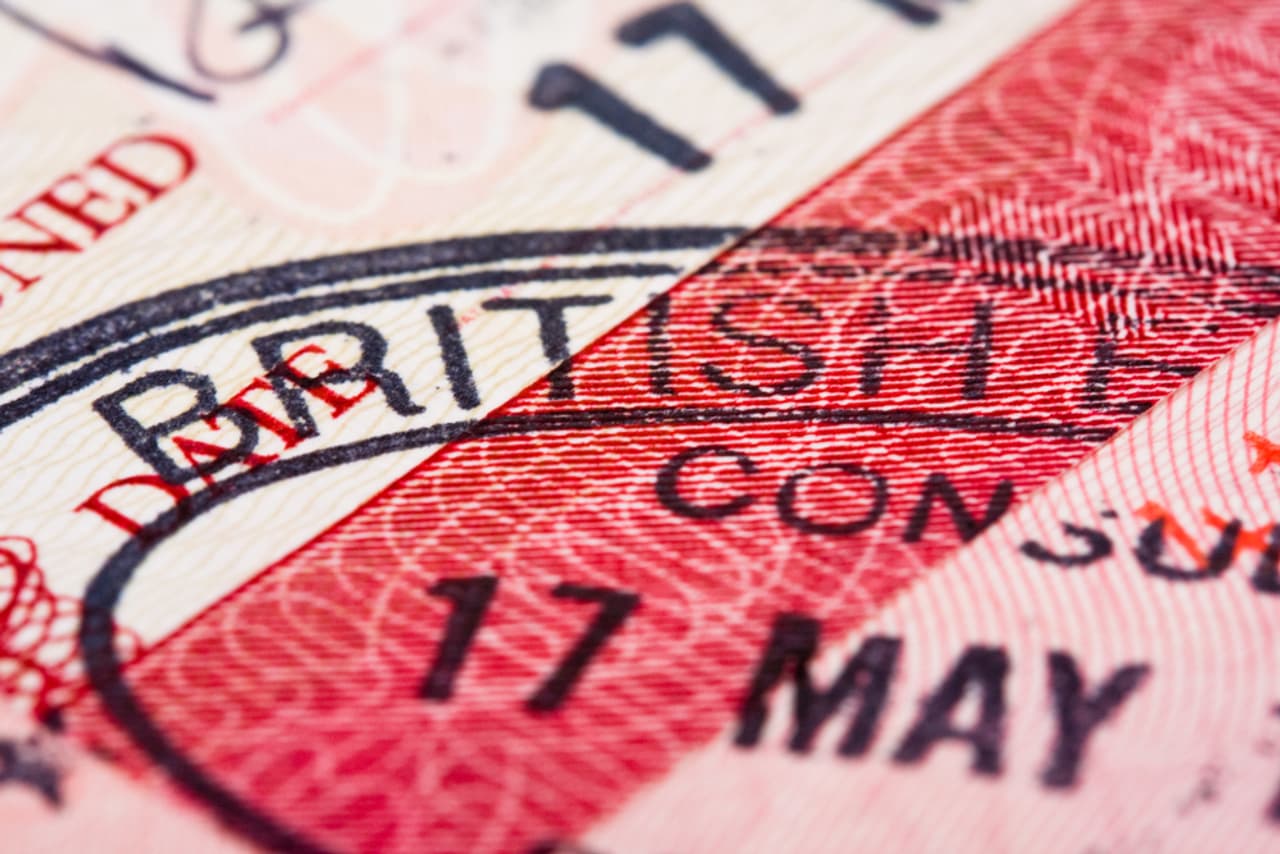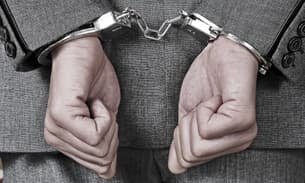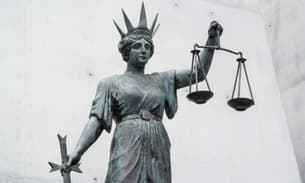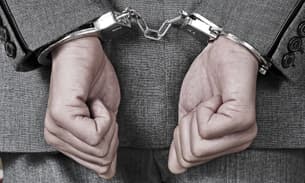
‘Medieval Exile’: The 42 Britons stripped of their citizenship
The government has used little-known powers to strip at least 42 people of their British nationality since 2002, a Bureau investigation has found. Thirty-seven of these cases have occurred under the Coalition government.
The Home Secretary can use powers in the British Nationality Act to remove the citizenship of an individual if she believes their presence in the UK is ‘not conducive to the public good’, or if they have acquired their citizenship by fraud.
The Bureau has identified 18 individuals, of whom 17 were stripped on national security grounds. These cases are often based on evidence which remains secret. Leading immigration lawyer Gareth Peirce has described the process as akin to ‘medieval exile.’
Changes to the law in 2002 allowed Britain’s Home Secretary to deprive dual-nationality Britons of their citizenship on national security grounds, without any prior approval from the courts. This doesn’t just affect people originally born outside Britain. The Bureau has identified five cases so far where British-born people have lost their UK nationality.
Those affected – or more often their UK relatives – only know of a decision when they receive a registered letter informing them of the fact. In almost every case, the government has stripped citizenship from people while they are out of the country. Once the decision is made, citizenship is immediately lost, along with all associated rights – the affected person’s passport is cancelled, they lose all rights to assistance from British embassies and consulates overseas, and they must apply for a visa if they wish to return to the country.
Individuals have just 28 days to challenge a deprivation order and in almost every case they are heard with the defendant outside the country. Of the 42 people who have been stripped of their British nationalities, there are only two known cases where individuals have successfully appealed. A third, that of Hilal al Jedda, won his appeal in the Supreme Court, but weeks later Theresa May issued a fresh order to deprive his British citizenship.
Of the others, two have been killed in US drone strikes, while one has been seized by the FBI and rendered to New York. The identities and whereabouts of 24 remain unknown.
All others are effectively exiled, with many caught up in lengthy court battles in an effort to return home.
Related article: Former British citizens killed by drone strikes after passports revoked
The 42 cases
Hilal al Jedda
Iraqi-born. Deprived December 2007. Overturned March 2012. Deprived again in November 2013.
Hilal al Jedda is an Iraqi asylum seeker who returned to Baghdad during the war. He was held for three years in Basra, accused of recruiting terrorists and of plotting against allied forces. He fought several high-profile cases against his detention. The Home Secretary revoked his citizenship while he was in custody. He appealed after he was released in December 2007, arguing he did not have Iraqi citizenship and was therefore illegally made stateless. The Supreme Court upheld his appeal in October 2013. Three weeks later, Theresa May stripped al Jedda’s citizenship for a second time. He continues to live with part of his extended family in Turkey and has launched an appeal.
Related article: Judge raises ‘appalling’ prospect of man losing citizenship for third time
At least 23 persons unknown
Nationalities include Afghan, Albanian, Bangladeshi, Iranian, Iraqi, Lebanese, Moroccan, Nigerian, Pakistani, Somalian, Yemeni and Federal Republic of Yugoslavia. Includes 20 individuals deprived since January 2013. At least 17 individuals are known to be appealing.
On December 18 2013 the Home Office disclosed to the Bureau that 20 individuals had been deprived of their citizenship since the start of the year – more than every previous year of the Coalition government combined. A former senior Foreign Office official told the Bureau it was ‘an open secret’ that the dramatic rise in citizenship stripping orders related to a number of British nationals travelling to fight in the war in Syria.
Related article: Britons returning from Syria prompt call for oversight on passport-stripping powers
Six people were stripped of their British nationality in 2012. The names and whereabouts of three of these individuals are also unknown.Six people were stripped of their British nationality in 2012. The names and whereabouts of three of these individuals are also unknown.
However in March 2014, Home Office minister James Brokenshire told parliament that of the 20 cases in 2013, 12 were on grounds of fraud, and of 2012’s six cases, one was on grounds of fraud. This means that five individuals lost their citizenship on conducive grounds in 2012, and a further eight did so in 2013. He added that ‘fewer than five’ have been deprived of nationality so far in 2014, all on fraud grounds.
F2
Nationality unknown. Deprivation date unknown (likely post-June 2012). Siac appeal pending.
F2’s identity is unknown. All we know so far is that this person is appealing the removal of their citizenship.
Mahdi Hashi
Somalia-born. Deprived June 2012. Secretly rendered by FBI to New York.
Hashi grew up in Camden, north London. In 2009 he and several friends said they were being pressured by MI5 into working as informants. That same year Hashi moved to Somalia, despite saying he had been warned by an MI5 agent: ‘Whatever happens to you outside [the] UK is not our responsibility’. There are claims that once in Somalia he became involved with al Shabaab, and in June 2012 Hashi’s family was informed he would be stripped of his citizenship on national security grounds. They say he intended to challenge this, but then vanished. In December, the Bureau reported the family’s suspicion that Hashi had been rendered by the US. Just days later it emerged he was in jail in New York, having been secretly taken there by the FBI. He now faces charges of belonging to al Shabaab and of taking part in ‘elite suicide bomber’ training.
Related article: Missing British-Somali man reappears in New York court
E2
Afghan-born. Deprived March 2012. Siac appeal rejected August 2012
Afghan-born E2 is described in Siac papers as a 36-year-old male who became a British citizen in 2009 and ran a business in London. While visiting his family in Pakistan, the Home Secretary deprived him of his nationality before he could return to the UK. In court papers E2 says he only learned that he had lost his citizenship on May 25 2012, when a British embassy official informed him at Dubai airport as he tried to fly home. His appeal was rejected following a partially secret Siac hearing.
B2
Deprived December 2011. Successfully challenged. Government now appealing.
This is one of three known cases where notice has been served on an individual while they were still in the UK. B2 came to the UK as a child with his refugee Vietnamese parents. He became a UK citizen in 1995, and later converted to Islam. In 2010 he reportedly traveled to Yemen, where MI5 alleges he trained with al Qaeda in the Arabian Peninsula (AQAP). He apparently returned to the UK in July 2011 and the Home Secretary informed him he would lose his British citizenship that December. B2 appealed, saying the decision would make him stateless. The Vietnamese government agreed that he was not its citizen, and the order was overturned. However the Home Office told the Bureau it is appealing. B2 is thought still to be in the UK.
Y1
Afghan-born. Deprived July 2011. Appeal dismissed May 2012. Proceedings are ongoing.
An Afghan asylum seeker, Y1 became a British citizen in 2004, married and had a son here. In 2010 he left London for Kabul, accompanied by his second wife, also British. According to court papers Y1 was arrested by UK forces in Afghanistan in summer 2011, after visiting Pakistan’s tribal areas. He was stripped of his citizenship on terrorism grounds on the same day as his release without charge in July 2011. Y1 challenged the order, arguing it would make him stateless. However Siac rejected the appeal.
S1, T1, U1 and V1
All British-born. Deprived April 2011. Appeal refused December 2012. Proceedings are ongoing.
S1 was born in Newcastle in 1963, a second-generation Briton whose father had moved to the UK from Kashmir five years earlier. S1’s own children are also British-born. Yet three of his sons – known only as T1, U1 and V1 and all in their twenties – were stripped of their citizenship along with their father in 2011. According to the Home Secretary the men were ‘active members’ of Kashmiri militant group Lashkar e Taiba and had links to al Qaeda. S1 denies the claims and argues the decision has made him stateless, since he never held a legitimate Pakistani passport. The family started proceedings to be allowed to return to the UK during the appeal, claiming that the family’s youngest son – a teenager who remains a British citizen – suffers from developmental issues and has ‘no hope of education in Pakistan’. Experts have argued that those in the family’s situation may be at risk from local militant factions and others. Yet the latest Siac judgement on the case states that the UK government and courts have no responsibility for the safety of ex-citizens. The entire family remains in Pakistan.
Mohamed Sakr
British-born. Deprived September 2010. Killed February 2012.
Mohamed Sakr was born and brought up in London, where he once ran a car valeting business. He had his citizenship revoked in September 2010, at the same time as his good friend Bilal al-Berjawi (see below). Sakr appears to have come to the attention of UK intelligence officials after he visited Saudi Arabia, Egypt and Dubai in 2007. His family was targeted by counter-terrorism officers over a two-year period according to reports, before al-Berjawi and Sakr left the UK in late 2009. Both allegedly became involved with al-Shabaab. Sakr had just turned 27 when he was killed in a US drone strike near Mogadishu. News agency AP reported an anonymous US official as saying that the strike had targeted an ‘international member of al Shabaab’, while Reuters said that ‘a very senior Egyptian‘ was killed. Sakr also held Egyptian nationality.
Related article: Former British citizens killed by drone strikes after passports revoked
Bilal al-Berjawi
Lebanese-born. Deprived September 2010. Killed January 2012.
Like Sakr, Bilal al-Berjawi was killed by the US following the removal of his UK citizenship. He was brought up in London from infancy, but allegedly became a senior figure with militant group al Shabaab in Somalia. He was also by some accounts a liaison between the group and al Qaeda, and Berjawi had been known to British counter-terrorism agencies for some years. In an interview before his death, Berjawi described how he was treated after being deported from Kenya to Britain in 2009: ‘When I arrived in the UK literally 10 to 13 big white built men came on the plane with suits. They escorted us off the actual aeroplane and they explained themselves, “We are MI5.” Took my fingerprints, took pictures. The way I was dealt with was not nice to be honest. It’s like I felt I was a man with no rights.’ In September 2010 the home secretary removed Berjawi’s citizenship. Nine months later came the first US attempt to kill him in a drone strike. In January 2012 the US succeeded, shortly after Berjawi phoned his wife to congratulate her on the birth of their son.
Related article: Parents of British man killed by US drone blame UK government
L1
Sudanese-born. Deprived July 2010. Appeal refused December 2010. Proceedings are ongoing.
L1 arrived in the UK as an asylum seeker in 1991 and became British in 2003. He is married to a Sudanese woman who has limited leave to remain in the UK. Their four children – all aged 11 or under – are British citizens. In July 2010 the family left the UK to spend their summer holiday in Sudan. ‘It was his and their intention that they should all return in time for the new school year,’ according to Siac court records. But within four days of the family leaving, the Home Secretary issued notice that L1 was to be stripped of his citizenship, claiming he had links to terrorism. His subsequent appeal focused on why L1 did not appeal within the 28-day time limit. The removal of his British citizenship effectively prevents L1’s four British children from growing up in the UK – and the Siac judges noted this was ‘unlikely to be in the best interests’ of the children. But they concluded the home secretary was ‘unlikely to have made that decision without substantial and plausible grounds for doing so’ – and upheld the order. The entire family remains in Sudan.
Related article: Home Secretary waited until suspect was abroad before stripping citizenship
Anna Chapman
Russian-born. Deprived July 2010. No appeal was lodged.
Russian-born Anna Chapman acquired UK citizenship through her four-year marriage to Briton Alex Chapman. Following their divorce she moved to the US on her British passport. But the home secretary removed Chapman’s British citizenship within a month of reports that she was a member of a Russian spying ring. The government later issued a statement noting that: ‘The home secretary has the right to deprive dual nationals of their British citizenship and, once deprived, to exclude them from the UK where she considers that to do so would be conducive to the public good.’ Chapman’s New York attorney in 2010, Robert Baum, told the Bureau that Chapman was ‘upset’ at the time to lose her UK nationality, as she had hoped to return to Britain. He also recalls the ‘huge surprise’ when informed by letter that Chapman had lost her citizenship on grounds of national security. ‘I thought you couldn’t revoke someone’s citizenship except under the most draconian circumstances…’ he said. Chapman now lives in Russia.
G1
Sudanese-born. Deprived June 2010. Appeal process paused during ongoing legal challenges.
‘G1’ cannot be named due to ongoing legal challenges. He was born in Sudan and came to the UK as a child. He obtained British citizenship in 2000. In early 2009 he reportedly took part in a protest against the Israeli offensive on Gaza and was arrested for a public order offence. He failed to appear at a London magistrate’s court later that year and is thought to have left the country. His citizenship was removed in 2010 on the claim that he was ‘involved in terrorism and had links to Islamic extremism’. G1 launched a judicial review application asking to return to the UK to appeal through Siac. He claimed he risked becoming of ‘adverse interest to the Sudanese security service’ if he tried to communicate with his lawyers over video or Skype. The legal challenge continues. G1 was last reported to be living in Sudan while his wife and young child remain in Britain.
Altin Arusha
Albanian-born. Deprived November 2009. Overturned March 2012.
Arusha, along with Abu Hamza (see below), are the only two people to have successfully challenged a deprivation order from the Home Secretary. Arusha sought asylum in the UK claiming he was from Kosovo, and acquired citizenship in 2008. The same year, he attempted to bring his fiancée from Albania to live with him in Britain, for which he had to present himself as a formal sponsor. The immigration authorities investigated his case and decided that Arusha was from Albania, which would have made his initial asylum application fraudulent. However, the courts did not feel the Home Secretary provided enough evidence and overturned the case. This is the only known case where citizenship has been stripped for something other than on national security grounds. Arusha continues to live in the UK.
Unknown Anglo-Pakistani
Pakistani-born. Deprived April-June 2009. No further details are known.
The Home Office refuses to release any further details about this case. Answers to parliamentary questions show the individual lost their UK citizenship sometime between April and June 2009. A later freedom of information request shows that they lost their British nationality while they were out of the country. Their present whereabouts are unknown.
David Hicks
Australian-born. Deprived July 2006. Appeal plans dropped in plea bargain.
David Hicks is probably the only person ever to have gained and lost British citizenship on the same day. Although Australian he claimed British citizenship through his UK-born mother, while in the US military prison at Guantanamo Bay. Court papers say he did this because ‘he considers he has a better chance of release [from Guantanamo], or other remedy, if a British citizen’. Despite UK government opposition, the High Court ruled there was no way to block his entitlement. But the government amended the law. This meant that when Home Secretary John Reid eventually granted Hicks his British citizenship in July 2006, he was immediately able to remove it. Hicks’ British barrister at the time, Stephen Grosz QC, recalls Hicks getting two letters from the Home Office on the same day. ‘One said, “Congratulations on your new citizenship”, the other, “We have to inform you you have now lost your British nationality.”‘ Hicks is now free and lives in Australia.
Abu Hamza
Egyptian-born. Deprived April 2003, successfully appealed 2010. Extradited to the US 2012.
The first attempt in 30 years to strip someone of their UK nationality took place in 2003. Just three days after new powers came into force, Tony Blair’s government sought to remove Egyptian-born Abu Hamza’s dual UK citizenship. But as a court judgment noted, ‘his appeal was overtaken by events’. Hamza was convicted of several offences in the UK, and the US also lodged extradition proceedings. These led to several unsuccessful legal challenges all the way up to the European Court of Human Rights. Hearings on the deprivation of Hamza’s citizenship finally resumed in 2010, and the laws at the time meant he remained British until the conclusion of his appeal. By then he had been stripped of his Egyptian nationality. And since the law forbids the home secretary from making someone stateless, Hamza won his case and remained British. That didn’t prevent him from being extradited to the US in October 2012.
Follow Chris Woods and Alice K Ross on Twitter.







